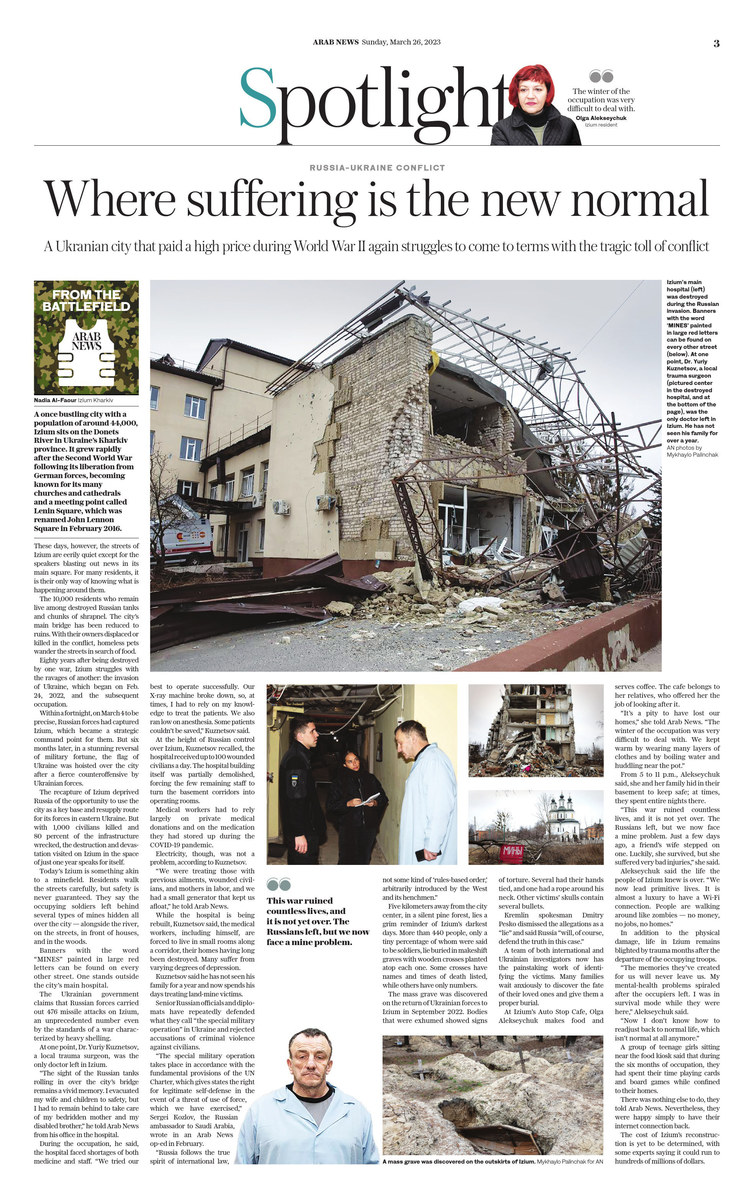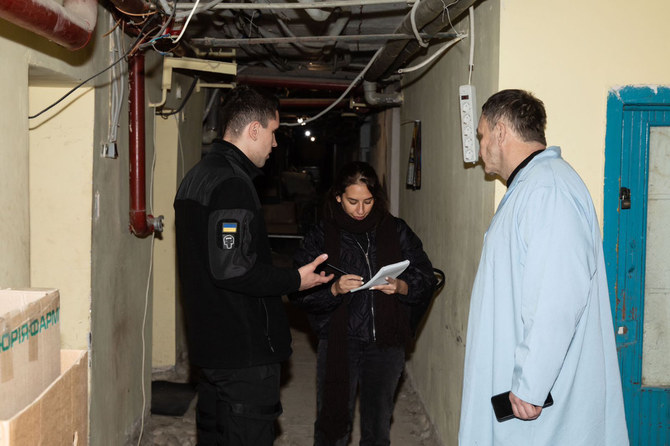IZIUM: A once bustling city with a population of around 44,000, Izium sits on the Donets River in Ukraine’s Kharkiv province. It grew rapidly after the Second World War following its liberation from German forces, becoming known for its many churches and cathedrals and a meeting point called Lenin Square, which was renamed John Lennon Square in February 2016.
These days, however, the streets of Izium are eerily quiet except for the speakers blasting out news in its main square. For many residents, it is their only way of knowing what is happening around them.
The 10,000 residents who remain live among destroyed Russian tanks and chunks of shrapnel. The city’s main bridge lies reduced to ruins. With their owners displaced or killed in the conflict, homeless pets wander the streets in search of food.
Eighty years after being destroyed by one war, Izium struggles with the ravages of another: the invasion of Ukraine, which began on Feb. 24, 2022, and the subsequent occupation.
Within a fortnight, on March 4 to be precise, Russian forces had captured Izium, which became a strategic command point for them. But six months later, in a stunning reversal of military fortune, the flag of Ukraine was hoisted over the city after a fierce counteroffensive by Ukrainian forces.
The recapture of Izium deprived Russia of the opportunity to use the city as a key base and resupply route for its forces in eastern Ukraine. But with 1,000 civilians killed and 80 percent of the infrastructure wrecked, the damage and destruction visited on Izium in the space of just one year speaks for itself.
Today’s Izium is something akin to a minefield. Residents walk the streets carefully, but safety is never guaranteed. They say the occupying soldiers left behind several types of mines hidden all over the city — alongside the river, on the streets, in front of houses, and in the woods.
Banners with the word “MINES” painted in large red letters can be found on every other street. One stands outside the city’s main hospital.
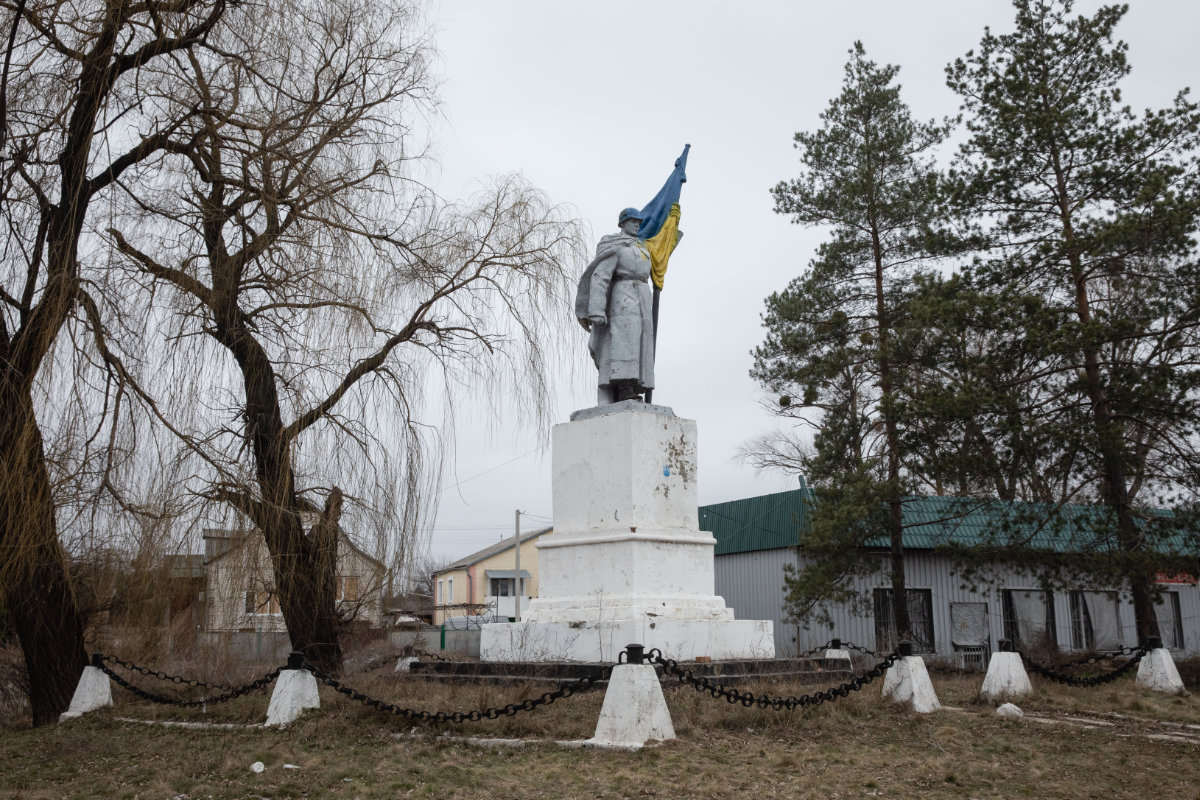
A once bustling city with a population of around 44,000, Izium sits on the Donets River in Ukraine’s Kharkiv province. It grew rapidly after the Second World War following its liberation from German forces, becoming known for its many churches and cathedrals. (AN photo by Mykhaylo Palinchak)
The Ukrainian government claims that Russian forces carried out 476 missile attacks on Izium, an unprecedented number even by the standards of a war characterized by heavy shelling.
At one point, Dr. Yuriy Kuznetsov, a local trauma surgeon, was the only doctor left in Izium.
“The sight of the Russian tanks rolling in through the city’s bridge remains a vivid memory. I evacuated my wife and children to safety, but I had to remain behind to take care of my bedridden mother and my disabled brother,” he told Arab News from his office in the hospital.
During the occupation, he said, the hospital faced shortages of both medicine and staff. “We tried our best to operate successfully. Our X-ray machine broke down, so at times, I had to rely on my knowledge to treat the patients. We also ran low on anesthesia. Some patients couldn’t be saved,” Kuznetsov said.
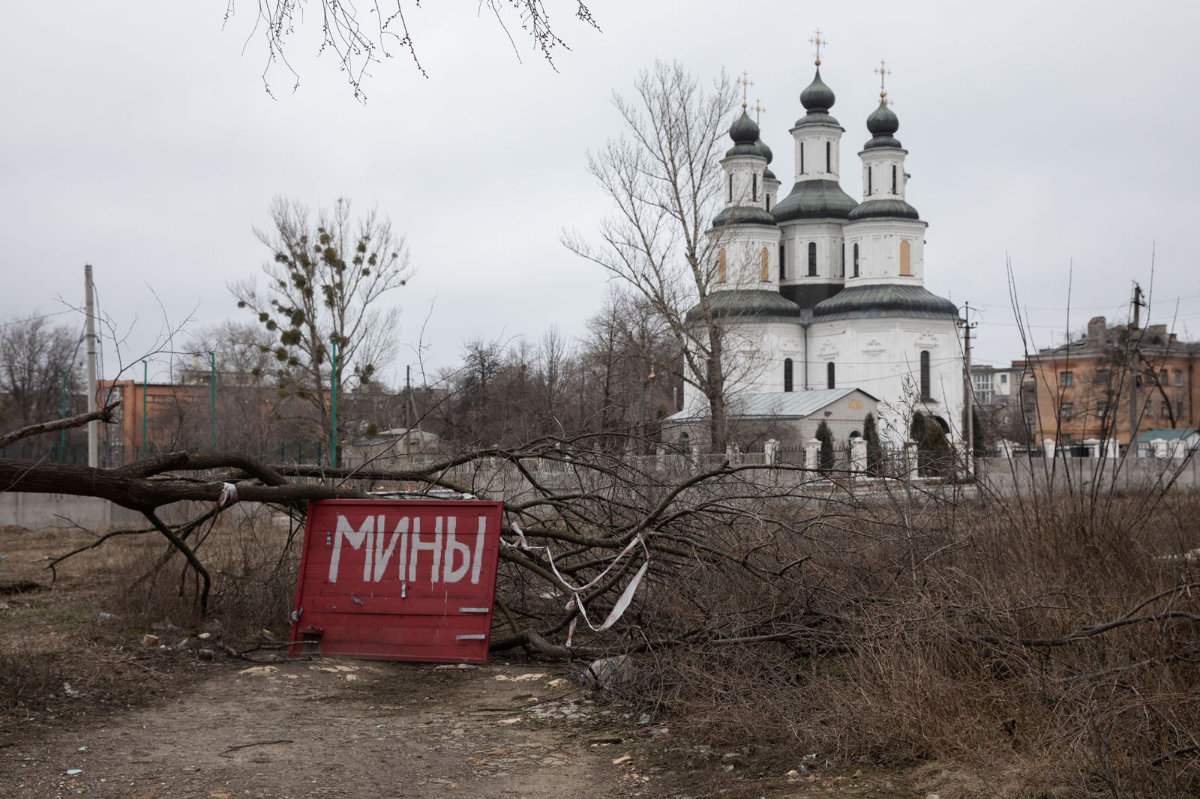
Banners with the word ‘MINES’ painted in large red letters can be found on every other street. Today’s Izium is something akin to a minefield. Residents walk the streets carefully, but safety is never guaranteed. (AN photo by Mykhaylo Palinchak)
At the height of Russian control over Izium, Kuznetsov recalled, the hospital received up to 100 wounded civilians a day. The hospital building itself was partially demolished, forcing the few remaining staff to turn the basement corridors into operating rooms.
Medical workers had to rely largely on private medical donations and on the coronavirus medications they had stocked up on during the pandemic.
Electricity, though, was not a problem, according to Kuznetsov.
“We were treating those with previous ailments, wounded civilians, and mothers in labor, and we had a small generator that kept us afloat,” he told Arab News.
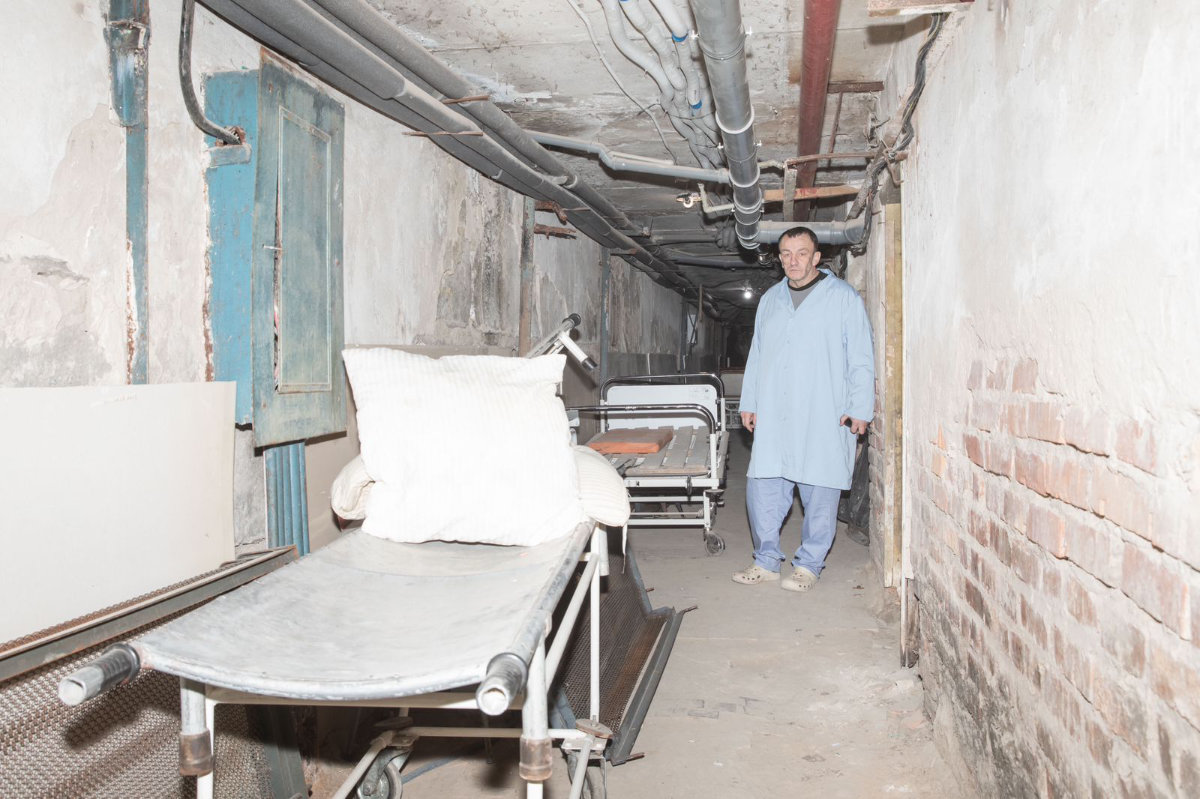
Dr. Yuriy Kuznetsov, a local trauma surgeon, in the destroyed main hospital in Izium. (AN photo by Mykhaylo Palinchak)
While the hospital is being rebuilt, Kuznetsov said, the medical workers, including himself, are forced to live in small rooms along a corridor, their homes having long been destroyed. They suffer from varying degrees of depression.
Kuznetsov said he has not seen his family for a year and now spends his days treating landmine victims.
Senior Russian officials and diplomats have repeatedly defended what they call “the special military operation” in Ukraine and rejected accusations of criminal violence against civilians.
“The special military operation takes place in accordance with the fundamental provisions of the UN Charter, which gives states the right for legitimate self-defense in the event of a threat of use of force, which we have exercised,” Sergei Kozlov, the Russian ambassador to Saudi Arabia, wrote in an Arab News op-ed in February.
“As you can see, Russia follows the true spirit of international law, not some kind of ‘rules-based order,’ arbitrarily introduced by the West and its henchmen.”
Five km away from the city center, in a silent pine forest, lies a grim reminder of Izium’s darkest days. More than 440 people, only a tiny percentage of whom were said to be soldiers, lie buried in makeshift graves with wooden crosses planted atop each one. Some crosses have names and times of death listed, while others have only numbers.
The mass graves were discovered on the return of Ukrainian forces to Izium in September 2022. Bodies that were exhumed showed signs of torture. Several had their hands tied, and one had a rope around his neck. Other victims’ skulls contain several bullets.

More than 440 people, only a tiny percentage of whom were said to be soldiers, lie buried in makeshift graves outside Izium. The mass graves were discovered on the return of Ukrainian forces to Izium in September 2022. (AN photo by Mykhaylo Palinchak)
Kremlin spokesman Dmitry Pesko dismissed the allegations as a “lie” and said Russia “will, of course, defend the truth in this case.”
A team of both international and Ukrainian investigators now has the painstaking work of identifying the victims. Many families eagerly wait to find out the fate of their loved ones and give them a proper burial.
At Izium’s Auto Stop Cafe, Olga Alekseychuk makes food and serves coffee. The cafe belongs to her relatives, who offered her the job of looking after it.
“It’s a pity to have lost our homes,” she told Arab News. “The winter of the occupation was very difficult to deal with. We kept warm by wearing many layers of clothes and by boiling water and huddling near the pot.”
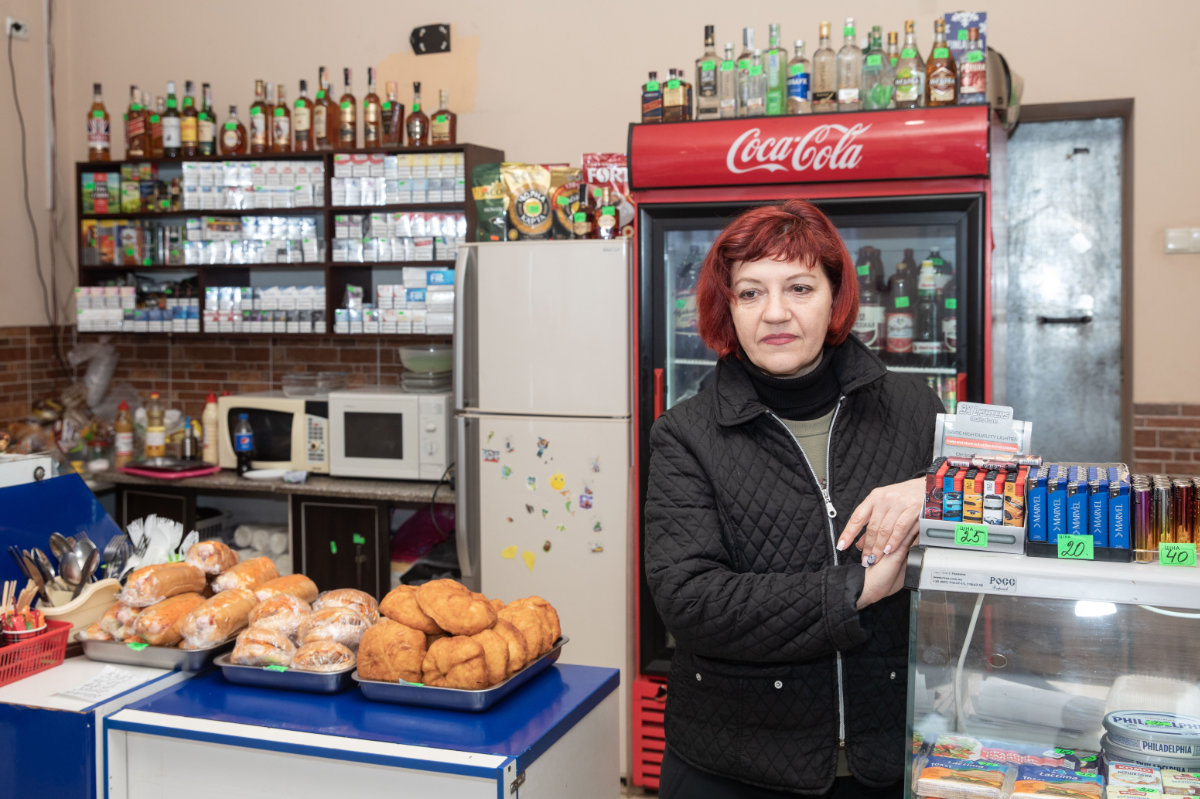
Olga Alekseychuk at Izium’s Auto Stop Cafe. (AN photo by Mykhaylo Palinchak)
From 5 to 11 p.m., Alekseychuk said, she and her family hid in their basement to keep safe; at times, they spent entire nights there.
“This war ruined countless lives, and it is not yet over. The Russians left, but we now face a mine problem. Just a few days ago, a friend’s wife stepped on one. Luckily, she survived, but she suffered very bad injuries,” she said.
Alekseychuk said the life the people of Izium knew is over. “We now lead primitive lives. It is almost a luxury to have a Wi-Fi connection. People are walking around like zombies — no money, no jobs, no homes.”
Her sentiment was echoed by a woman who runs a small food kiosk nearby. The woman, who did not want to give her name, told Arab News she practically lived in her basement and had taken to boiling water to keep warm with her son. They survived on canned food.
In addition to the physical damage on a colossal scale, life in Izium remains blighted by anguish and trauma months after the departure of the occupying troops.
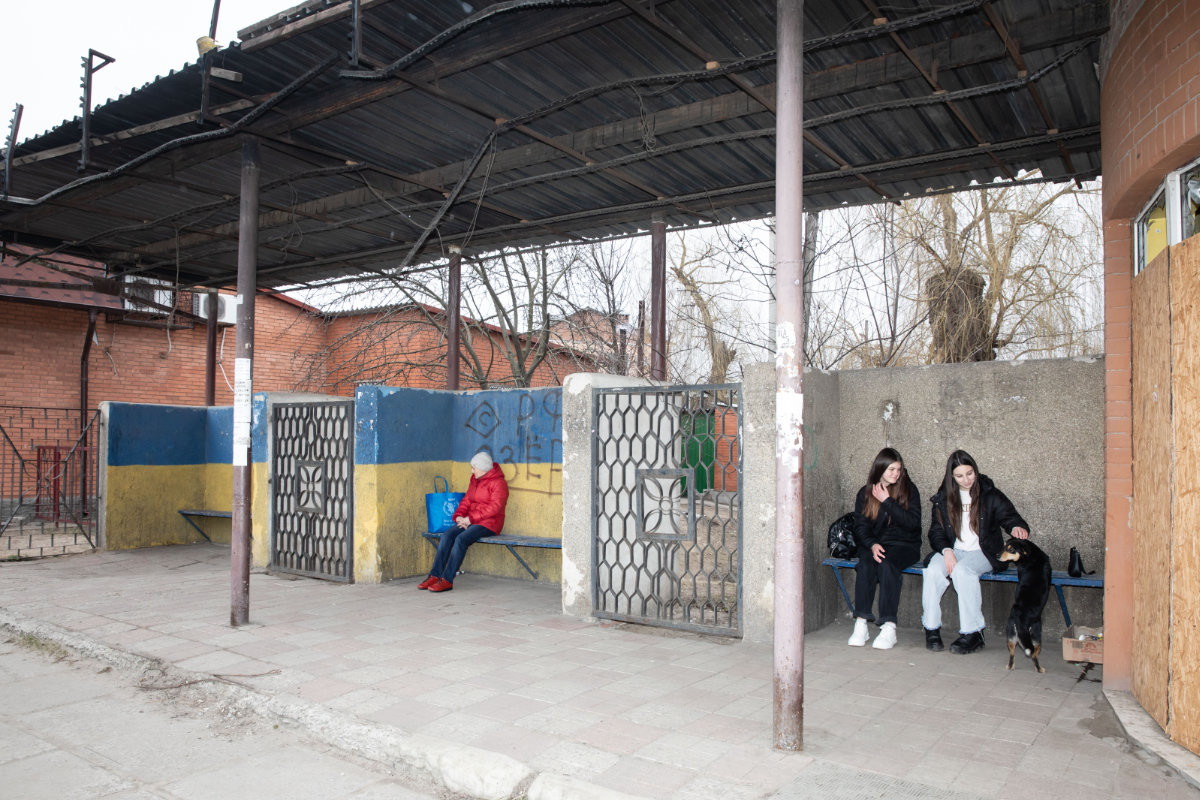
While some small businesses have reopened, the economic revival of the city is still a long way off. (AN photo by Mykhaylo Palinchak)
“The memories they’ve created for us will never leave us. My mental health problems spiraled after the occupiers left. I was in survival mode while they were here,” Alekseychuk said.
“Now I don’t know how to readjust back to normal life, which isn’t normal at all anymore.”
On a recent day, a group of teenage girls sat near the food kiosk. They said that during the six months of occupation, they had spent their time playing cards and board games while being confined to their homes.
There was nothing else to do, they told Arab News. Nevertheless, they were happy simply to have their internet connection back.
The cost of Izium’s reconstruction is yet to be determined, with some experts saying it could run into hundreds of millions of dollars.
While some small businesses have reopened, the economic revival of the city is still a long way off.
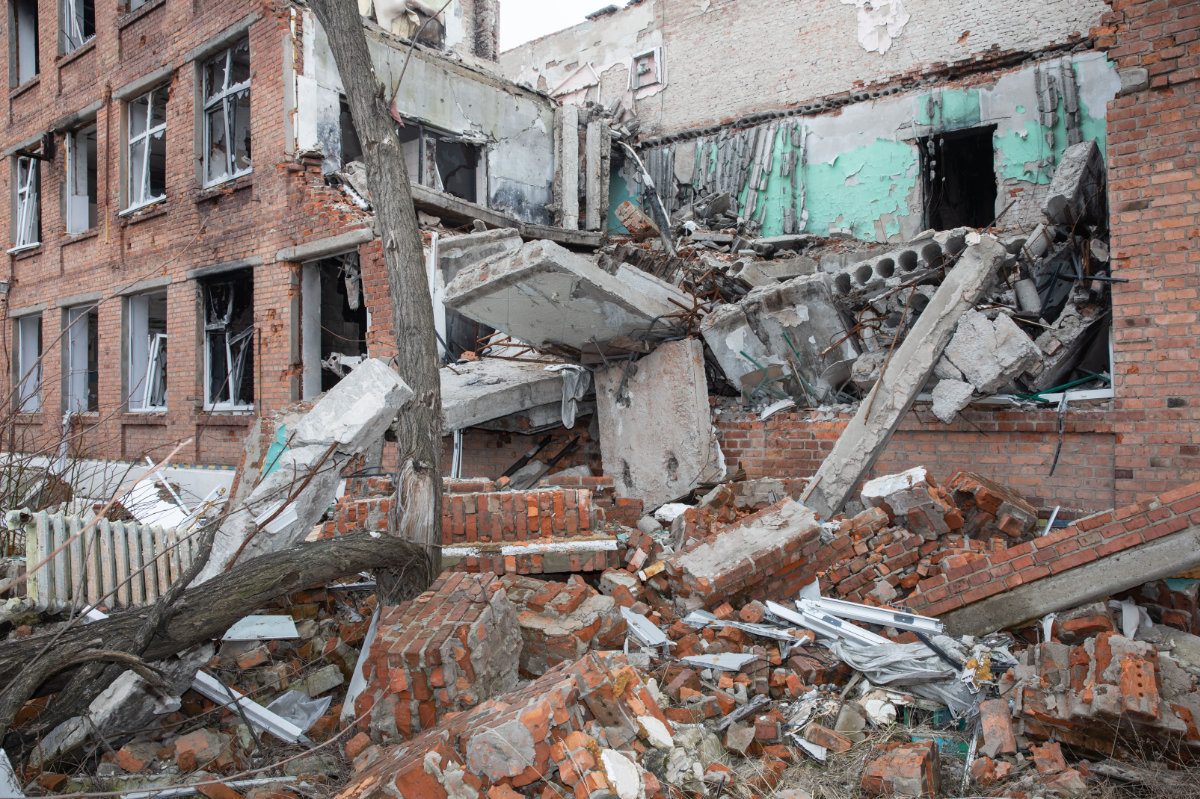
Experts say the cost of reconstruction in Izium alone could run into hundreds of millions of dollars. (AN photo by Mykhaylo Palinchak)
Most citizens expect financial assistance from Ukraine’s government, but how the authorities intend to decide on the allocation of funds remains unclear, especially given that most of its budget is still earmarked for fighting off Russian forces.
As for the citizens of Izium, they are waiting not only for the reconstruction of their city, but of their lives too.
“Everybody needs mental health services now,” the food kiosk owner said.
